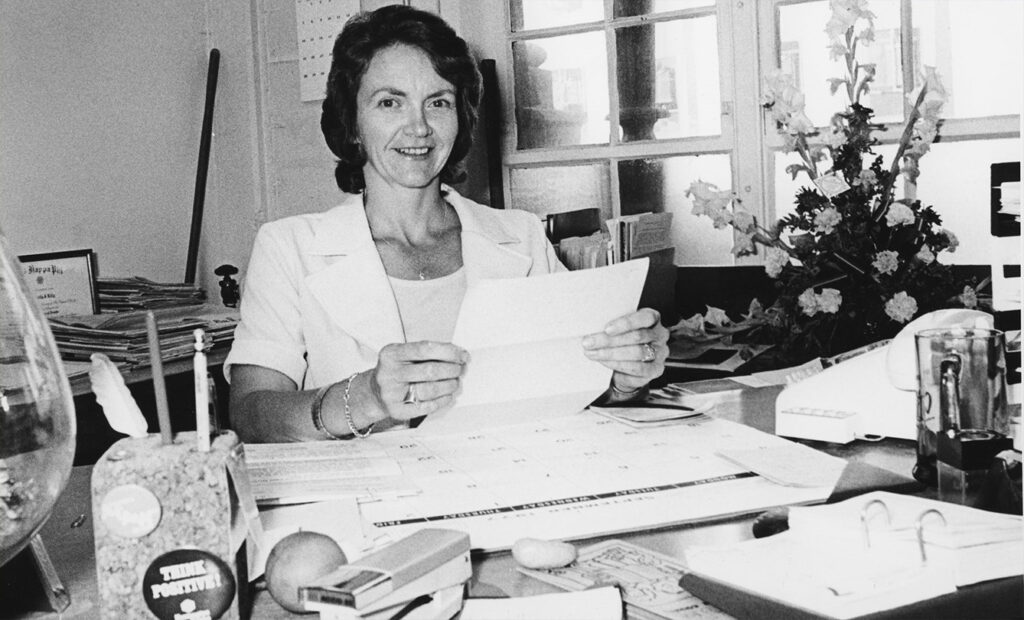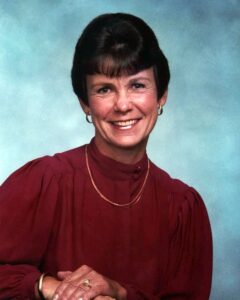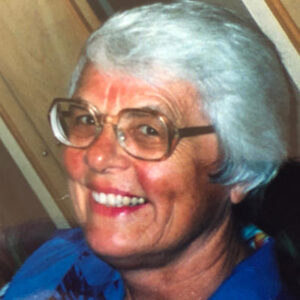How Title IX Affected Women’s Athletics at UC Berkeley and Beyond
By William Cooke
Title IX, a federal civil rights law passed in 1972 that amended the 1964 Civil Rights Act, prohibits discrimination based on sex at any educational institution that receives federal funding. While it pertains broadly to all forms of sex-based discrimination, the law arguably precipitated the most change in the arena of intercollegiate athletics. In any case, the passage of Title IX half of a century ago represents perhaps the single most significant event in the history of intercollegiate athletics in the United States, and was a major victory in the realm of civil rights for women.
The UC Berkeley Oral History Center houses a rich collection of interviews between oral historians and a diverse set of individuals that touch upon Title IX. In these interviews, influential figures across many different fields including intercollegiate sports, academia, and politics provide their insight into Title IX and its implementation over the course of the past fifty years.
“Title IX was fantastic for women in politics. It has created a generation of risk takers, in the best of ways.” —Mary Hughes, political consultant
Here are just a handful of voices that mention the transformative 1972 law across a few of the Oral History Center’s many collections.

In her oral history, Mary Hughes, a long-time Democratic political consultant who once served as the executive director of the California Democratic Party, recognizes the underappreciated role of Title IX and gender inclusion in sports in preparing women for positions of leadership in politics.
I attribute a lot of their success to Title IX, and here’s why: Title IX was fantastic for women in politics, both those who have supported and strategized to get women into office, and the women who have run. There is a difference between the women who grew up playing sports from a very young age and the women who did not… Their ability to be competitive without an irrational fear of failure is one of the most freeing things I’ve ever seen. I love these young, competitive women, and I hope we hold on to this, because it has created a generation of risk takers, in the best of ways, in the best of ways.
As a result of Title IX’s passage at the start of the decade, Luella Lilly became the first director of Women’s Athletics at Cal in 1976. The promise of equal opportunity for women in collegiate sports did not — and still does not — mean that men’s and women’s sports were resourced equally. One of Lilly’s priorities as director was to establish scholarships for female athletes for the very first time.
And so what I did was—they gave me—I think it’s $6,740 dollars, which was— tuition and fees were $670, I think they were, something like that. Anyway, it gave me ten tuition and fees at that point in time. So I gave them to each of the sports that could give scholarships, and had the coach divide it so that whatever way they wanted to. If they wanted to give somebody a full ride that was up to them, but if they wanted to split it among all— they could do anything they wanted to in their particular sport. But I just wanted to be able to mark the check that said we had them.

Joan Parker, a former Cal women’s basketball, softball, volleyball and tennis coach as well as assistant and associate athletic director in the Women’s Athletic Department for 13 years, praises Lilly for championing women’s sports when it was underfunded and underappreciated in the decades following 1972.
Lue came in, it was just—I was totally impressed with how she made things happen with so little money. It was just ridiculous when you compared our budgets to others… But Title IX definitely— and I think a lot of people didn’t understand it. A lot of outside— like our boosters and things like that, weren’t as aware of it. I think it was more of an internal pressure that at some point you’re going to be held accountable, and so you’d better start something in motion.
But while revolutionary and long overdue, Title IX also had some adverse, unintended consequences that still trouble university athletic programs.
Roberta Park was a supervisor of Physical Education at UC Berkeley until she stepped down after the passage of Title IX. She later served as the chair of the Department of Physical Education between 1982 and 1992. Park was a tireless champion of physical education programs and, in her oral history, makes it known that Title IX indirectly brought about a whole slew of repercussions for recreational sports programs that once benefited the entire student body. For one thing, elite athletes were prioritized over women’s widespread inclusion in sports.
I believed, and still believe, that colleges and universities (and high schools as well) should provide extracurricular sports programs for all interested women and girls, not just for the small number of the best athletes. Unfortunately, what evolved was an emphasis on the latter and an approach that gives the athletic program for a small number of the women athletes precedence over everything else… “We want to focus only on the women’s “varsity” basketball team, etc.” Well, if you put all of your efforts into a small number of the best athletes and you forget about all the others, what have you done? And that’s exactly what has happened. That’s exactly what has happened.

Another repercussion of Title IX was the merging of Physical Education and Intercollegiate Athletics departments at major universities across the country. This meant that sports programs for women were subsumed into intercollegiate athletics programs, sometimes causing women to lose higher-level administrative positions to men. After the passage of Title IX, Park pushed for the creation of a separate department of intercollegiate sports for women at UC Berkeley, which she argued was crucial to protecting female representation in intercollegiate athletics administration.
The emerging intercollegiate athletic sports for women, which used to be under the direction of Women’s Athletic Association or Women’s Recreation Association (which were directed by females, usually physical educators) were now all being moved over into Intercollegiate Athletics. With very, very few exceptions (in fact, I can think of none except at women’s colleges) all the Directors positions were taken over by men: And one of the things that I said was, “Well, okay, men have been doing this longer, and fair enough, but if Title IX is supposed to be about equity, what about the equity of women as the directors?”… So they finally decided, and I— I guess pushed is the right word, to the extent that I thought was appropriate, in the direction of a separate unit for women.
Another issue that arose was in the way that equal opportunity was interpreted. Charles Young, the Chancellor of UCLA between 1968 and 1997, witnessed firsthand the evolution of Title IX’s implementation at a major Division I university from before its conception up until the late 1990s. Young found the policy of creating an equal number of men’s and women’s programs to be misguided and at times counterproductive.
The principles of Title IX are fantastic but I think the major problem was that they took equivalence or took opportunity. Instead of opportunity they looked at the balance. And so you create a women’s sport to get in balance and there isn’t anybody who wants to play it. So then you have to go out and recruit people to come play it. Well, the principle should have been, are you providing as much opportunity for the women students as you are for the men. But it’s driven up the number of sports. It’s caused good sports to be eliminated at UCLA.
Former UC Berkeley Athletic Director John Kasser, who served as AD between 1993 and 2000, claims in his interview that Title IX was unfair to the supporters of Cal men’s sports who had to subsidize women’s sports in order to continue funding men’s sports at a competitive rate.
But see, that’s the thing when we—I don’t blame—Title IX was absolutely right and has been wonderful for women’s athletics, but nobody ever came with a financial plan… And so they expected Men’s Athletics to raise the funds to support Women’s Athletics. And so when you talked about it—you couldn’t say, “Well, that’s not fair.” But it wasn’t fair. It wasn’t fair.
One could argue that Title IX’s pitfalls speak more to the systemic issues that have prevented female student athletes from enjoying the same access to resources as men and not, as some might argue, to the failure of the law itself to protect “fairness.” The historical disadvantages of women in college sports made growing pains inevitable and even healthy for a field that has been dominated by men from the outset.
Now, fifty years after Title IX’s inception, these interviews help us recognize not only that progress is never perfect or steady, but also just how much progress has been made in the way of gender equality in intercollegiate sports thanks to the ongoing struggle of marginalized groups for the recognition of their civil rights.
Find these and all our oral histories from the search feature on our home page. You can search by name, keyword, and several other criteria.
William Cooke is a fourth-year undergraduate student majoring in Political Science and minoring in History. In addition to working as a student editor for the Oral History Center, he is a reporter in the Sports department at UC Berkeley’s independent student newspaper, The Daily Californian.
About Title IX
Title IX of the Education Amendments to the Civil Rights Act of 1964 was signed into law on June 23, 1972, by President Richard M. Nixon: “No person in the United States shall, on the basis of sex, be excluded from participation in, be denied the benefits of, or be subjected to discrimination under any education program or activity receiving Federal financial assistance.”
Related Resources from The Bancroft Library
The Bancroft Library has hundreds of materials related to athletics in California and beyond. Here are just a few.
See the Oral History Center’s (OHC) project, “Management of Intercollegiate Athletics at UC Berkeley: 1960–2014” which includes more than forty interviews with chancellors, athletic directors, faculty members, donors, and others involved in athletics at Berkeley. See also OHC’s “Education and University of California — Individual Interviews” featuring more than 150 faculty, senior administrators, and staff.
University of California, Berkeley. Department of Women’s Intercollegiate Athletics records, 1976-1993. UC Archives (NRLF) CU-566
A celebration of excellence : 25 years of Cal women’s athletics. UC Archives Folio 308m.p415.c.2001
Title IX self study, University of California, Berkeley, approximately 1977. UC Archives (NRLF) CU-509
About the Oral History Center
The Oral History Center of The Bancroft Library has interviews on just about every topic imaginable. You can find the interviews mentioned here and all our oral histories from the search feature on our home page. Search by name, keyword, and several other criteria. We preserve voices of people from all walks of life, with varying political perspectives, national origins, and ethnic backgrounds. We are committed to open access and our oral histories and interpretive materials are available online at no cost to scholars and the public.
Sign up for our monthly newsletter featuring think pieces, new releases, podcasts, Q&As, and everything oral history. Access the most recent articles from our home page.